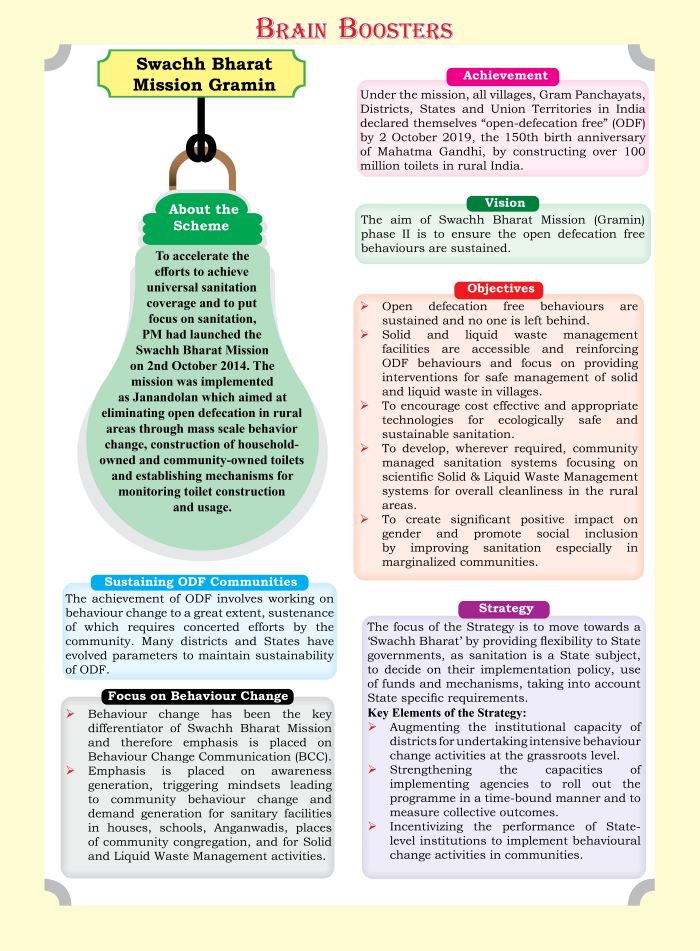1. About the Scheme
To accelerate the efforts to achieve universal sanitation coverage and to put focus on sanitation, PM had launched the Swachh Bharat Mission on 2nd October 2014. The mission was implemented as Janandolan which aimed at eliminating open defecation in rural areas through mass scale behavior change, construction of household- owned and community-owned toilets and establishing mechanisms for monitoring toilet construction and usage.
2. Sustaining ODF Communities
The achievement of ODF involves working on behaviour change to a great extent, sustenance of which requires concerted efforts by the community. Many districts and States have evolved parameters to maintain sustainability of ODF.
3. Focus on Behaviour Change
- Behaviour change has been the key differentiator of Swachh Bharat Mission and therefore emphasis is placed on Behaviour Change Communication (BCC).
- Emphasis is placed on awareness generation, triggering mindsets leading to community behaviour change and demand generation for sanitary facilities in houses, schools, Anganwadis, places of community congregation, and for Solid and Liquid Waste Management activities.
4. Achievement
Under the mission, all villages, Gram Panchayats, Districts, States and Union Territories in India declared themselves “open-defecation free” (ODF) by 2 October 2019, the 150th birth anniversary of Mahatma Gandhi, by constructing over 100 million toilets in rural India.
5. Vision
The aim of Swachh Bharat Mission (Gramin) phase II is to ensure the open defecation free behaviours are sustained.
Objectives
- Open defecation free behaviours are sustained and no one is left behind.
- Solid and liquid waste management facilities are accessible and reinforcing ODF behaviours and focus on providing interventions for safe management of solid and liquid waste in villages.
- To encourage cost effective and appropriate technologies for ecologically safe and sustainable sanitation.
- To develop, wherever required, community managed sanitation systems focusing on scientific Solid & Liquid Waste Management systems for overall cleanliness in the rural areas.
- To create significant positive impact on gender and promote social inclusion by improving sanitation especially in marginalized communities.
Strategy
The focus of the Strategy is to move towards a ‘Swachh Bharat’ by providing flexibility to State governments, as sanitation is a State subject, to decide on their implementation policy, use of funds and mechanisms, taking into account State specific requirements.
Key Elements of the Strategy:
- Augmenting the institutional capacity of districts for undertaking intensive behaviour change activities at the grassroots level.
- Strengthening the capacities of implementing agencies to roll out the programme in a time-bound manner and to measure collective outcomes.
- Incentivizing the performance of State- level institutions to implement behavioural change activities in communities.







